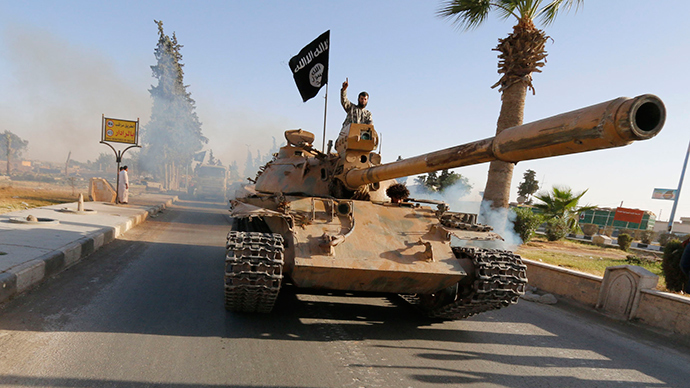‘Britain should do more to fight ISIS’ - Defence Committee

The UK can and should be playing a greater role in the fight against the Islamic State (IS, formerly ISIS/ISIL), according to a report published by MPs on Thursday.
The Defence Committee’s report claims the UK has the military capability, expertise and resources to make a greater contribution in the fight against IS, including support for Iraqi forces, and can also play a role in encouraging a political solution.
They call the Islamic State’s recent acquisition of swathes of northern Iraq a “nightmare.” They also say, in spite of the threat to neighboring countries, the UK’s role is “strikingly modest.”
The Islamic State was recently defeated in the border town of Kobani, where local Peshmerga troops had battled the extremists for control of the town for months.
The end of the Kobani siege was hailed as a significant victory. However, it’s estimated that as well as controlling an area in Iraq the size of the UK, IS also provides a safe haven for some 20,000 foreign fighters.
READ MORE:‘Beheaded, crucified, buried alive’: UN slams ISIS for killing Iraqi children
The terror group is responsible for the murder of captive Jordanian pilot Muath al-Kasasbeh after negotiations with Jordan broke down. His death was announced with the release of a video on Tuesday, which showed the pilot being burned to death.
The Defence Committee said the unwillingness of military chiefs to provide a clear and articulate statement of the UK’s strategic plan in Iraq was “shocking.” They accused them of a lack of clarity over who was in charge of the policy, and questioned whether such a policy even existed.
MPs were shocked to find that outside the Kurdish region there are only three British service personnel in Iraq – compared to 400 Australians, 280 Italians and 300 Spanish – despite British troops having expertise in local tribes and an understanding of Shia militia.
While the Committee did not suggest putting boots on the ground, the report recommends the UK invests in the development of staff understanding of the situation in order to help form a realistic coalition plan.
They further suggest that as well as training Iraqi troops in counter-IED skills, the UK must built up greater diplomatic engagement with regional powers such as Turkey, Saudi Arabia and Iran.
READ MORE:‘Crucify them!’ Muslim leaders condemn ISIS execution of Jordanian pilot
Committee chairman, Rory Stewart MP, said: “These are all areas in which the UK can assist, bringing in the best of UK international development expertise, intelligence, special forces, and diplomacy; all with an aim of decreasing the probability of an ongoing civil war, and increasing the chances of a political settlement, however distant these objectives may be.”
The Committee suggested involvement in such activities would only require the deployment of a few hundred service personnel troops and would not cost as much, nor be as risky as sending combat troops.
Stewart said it was necessary to acknowledge previous failures in Iraq and build upon these to reform the UK’s approach.
“That does not mean lurching to doing nothing,” he added. “The UK should find a way of engaging with Iraq which is moderate, pragmatic, but energetic. There are dozens of things the UK could be doing, without deploying combat troops, to work with coalition partners to help address one of the most extreme threats that we have faced in the last 20 years.”
A government spokesperson said ministers had always been “absolutely clear” about the objectives for Iraq, and that these had been set out in the Commons “on a number of occasions.”












